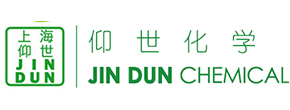How long will overseas enterprises wait for the spring of monopolizing electronic specialty gas?
2023/9/4
As a pioneer in the localization of special gases, A-share listed company Huate Gas's net profit in the first half of the year decreased by nearly 40% compared to the same period last year. The next day after the performance announcement, its stock price plummeted by over 10% in response. However, the industry points out that as the semiconductor industry as a whole gradually bottoms out, the demand for electronic specialty gases may reverse and increase within the year with the support of the three pillar industries of integrated circuits, panels, and photovoltaics.
The electronic specialty gas market is monopolized by overseas enterprises
Electronic special gases are known as the "jewel in the crown" of industrial gases, and as key materials in semiconductor manufacturing, they are also known as the "blood" of the semiconductor industry, which directly affects the performance of semiconductor products. In the manufacturing process of integrated circuit wafers, the use of electronic specialty gases accounts for nearly 14%, making it the second largest consumable after silicon wafers.
Huate Gas, one of the largest private special gas and related equipment suppliers in China, disclosed a semi annual report in early August, showing a revenue of 741 million yuan, a year-on-year decrease of 16.21%; The net profit attributable to the parent company was 74.6188 million yuan, a year-on-year decrease of 36.85%. During the reporting period, due to economic downturn, sluggish demand for consumer electronics, and a decrease in downstream semiconductor factory turnover, the company's sales of special gases decreased by 26.32% year-on-year, with electronic special gas sales of 344 million yuan decreasing by 32.28% year-on-year. On the day after the release of the semi annual report, Huate Gas's stock price plummeted by 10.21% in response, with the longest cumulative decline of 56% since its peak in September 2022.
It is worth noting that the performance of related electronic gas A-share listed companies in the second half of last year was still satisfactory, mainly because the Russia-Ukraine conflict restricted the export of electronic gas from Russia and Ukraine. According to data, Ukraine is the main exporter of neon gas, producing 70% of the world's neon gas. But starting this year, the supply gap between Russia and Ukraine has been resolved, coupled with the overall downward trend in the semiconductor industry, the prices of such electronic gases have plummeted. According to iFinD data, the average prices of helium and neon in 23Q2 decreased by 31.7% and 96.6% year-on-year, respectively.
At present, the market share of domestically produced electronic special gases is relatively small. According to the statistics of the China Industrial Gas Industry Association, China can only produce about 20% of electronic special gas varieties for integrated circuit production, with insufficient high-end production capacity and severe import dependence.
At the same time, due to several barriers such as technology, certification cycle, funding, and qualifications, the production capacity of international electronic specialty gas has been monopolized. The global and Chinese electronic specialty gas markets are mainly occupied by overseas companies, with the main producers being Air Chemical of the United States, Linde Group of Germany, Liquefied Air of France, and Dayang Acid, accounting for a total of 91% of the global electronic specialty gas market share and occupying a dominant position in China. According to TECHCET, the total market share of foreign investment in China's electronic specialty gas market was about 85% in 2020. According to Yidu data, the first tier domestic enterprises include Huate Gas, Jinhong Gas, Nanda Optoelectronics, and Yake Technology, with market share proportions of only 1.91%, 1.56%, 1.5%, and 1.3% in 2020, respectively.
Market development of Huate Gas, Kaimeite Gas, and other markets frequently reported good news
From the current point of view, opportunities are also nurtured in crises. Analysis has pointed out that Huate Gas, as one of the most comprehensive listed companies with both product development and customer advantages, is expected to win industry dividends first. It is understood that Huate Gas's flagship product, photolithography gas, has been certified by ASML in the Netherlands and GIGAPHOTON in Japan, making it the only gas company in China that has passed both certifications. In January of this year, the company's excimer laser gas products passed relevant certifications. In addition, the company has successfully achieved over 85% customer coverage for domestic 12 inch integrated circuit manufacturers.
After entering the electronic specialty gas market, the Kaimeite gas market has also made new breakthroughs. On February 2nd, the company announced in the afternoon that it had been certified as a supplier of lithography gas products by ASML subsidiary, Cymer. The ASML subsidiary, Cymer, has included Kaimeite electronic specialty gas company's lithography gas products in the qualified supplier list. Driven by positive news, the stock price of Kemet Gas closed its limit in the afternoon of the same day.
A-share leading gas manufacturers such as Huate Gas, Jinhong Gas, and China Shipbuilding Special Gas have become major suppliers of special gas to domestic integrated circuit production enterprises such as SMIC International, Changjiang Storage, and Huahong Semiconductor. Their products have successively obtained certifications from leading overseas enterprises such as TSMC, Lianhua Electronics, Texas Instruments, and Hynix, and some of their products have entered the supply chain of relevant enterprises. At the same time, there is still significant room for improvement in the localization rate of electronic specialty gases. According to the prediction of the Forward Industry Research Institute, the localization proportion of China's electronic specialty gas market will increase to 25% by 2025.
The industry points out that the demand for electronic specialty gases may reverse and increase within 2023 with the support of the three pillar industries of integrated circuits, panels, and photovoltaics. According to SEMI's "World Wafer Factory Forecast Report", it is expected that global wafer factory equipment expenditure will decrease by 22% year-on-year in 2023. However, according to the cycles of the past semiconductor cycle, this also means that the industry's trough has passed. By 2024, global semiconductor equipment investment will quickly rebound to $92 billion, a year-on-year increase of 21%. With the rebound in global investment in semiconductor equipment, it will drive demand for related materials, including electronic specialty gases.
Some analysts believe that although compared to international gas companies, domestic gas companies still have gaps in funding, technology, equipment, and other aspects. However, under the influence of multiple factors such as continuous technological breakthroughs, national policy support, and rapid development of downstream markets, coupled with the advantages of low cost, customer proximity, and flexible response of domestic enterprises, the competitiveness of domestic gas enterprises will continue to strengthen, and market share is expected to expand.
JIN DUN CHEMICAL has built a special (meth) acrylic monomer manufacturing base in ZHEJIANG province. This makes sure the stable supply of HEMA, HPMA, HEA, HPA, GMA with high level quality. Our special acrylate monomers are widely used for thermosetting acrylic resins, crosslinkable emulsion polymers, acrylate anaerobic adhesive, two-component acrylate adhesive, solvent acrylate adhesive, emulsion acrylate adhesive, paper finishing agent and painting acrylic resins in adhesive.We have also developed the new and special (meth) acrylic monomers and derivatives. Such as the fluorinated acrylate monomers, It can be widely used in coating leveling agent, paints, inks, photosensitive resins, optical materials, fiber treatment, modifier for plastic or rubber field. We are aiming to be the top supplier in the field of special acrylate monomers, to share our rich experience with better quality products and professional service.

